I admit it: the first place I looked when I was assigned this text was www.workingpreacher.org, and my eyes fell on Melinda Quivik’s commentary immediately. There it was on the screen: “The pastor’s challenge is to work at making a familiar text strange…”
The point of this Lenten blog, it seems, is to make the familiar text queer.
What unique perspectives can the Proclaim community bring to reading the Bible? Most, if not all, LGBTQIA+ people have had to read the Bible with fear and trembling, then with anger, then curiosity. After a long time in the wilderness, we tend to read the Bible with liberation and courage. We demand things of the texts. We demand things of God. “Explain yourself!” “Where are you?” “What might you be doing in me and through me?”
Well, turns out Jesus was likely asking the same things of God as Jesus entered the wilderness, the passage we find in Matthew 4:1-11. We read this story at the beginning of every Lent. “O church,” the trembling pastor proclaims, “we enter the wilderness of Lent, these 40 days of denial and wandering.”
Fasten your seatbelts, it’s going to be a bumpy ride.
The tried and true path preacher’s take on this text is the assurance we will be tempted, just as Jesus was tempted. Jesus forsook Satan (try to use the word “forsook”. It just doesn’t get enough airtime these days) Jesus forsook Satan and so should you. There’s rarely an acknowledgement that Jesus is God and can do things we cannot. So try really hard, dear listeners, like Jesus did. White knuckle it.
That’s a terrible way to introduce Lent.
Oh, we can muse about the temptations Jesus faces, the temptations to eat, the temptations of power. The temptations of risky behavior which God will save us from. We might describe different ways Satan tempts us today: too much social media. Obsessions with fitness or fashion or investment accounts. Political infighting. Racism, sexism, homophobia. Look how relevant this sermon is!
But what’s the queer perspective?
I won’t speak for all queers, but I’ll speak for myself. This Lent, as I approach this passage, I think about the wilderness.
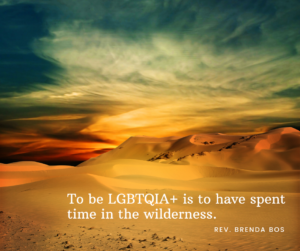 To be LGBTQIA+ is to have spent time in the wilderness. There were lonely days. Days when we were sure no one understood us. Days when we didn’t understand ourselves.
To be LGBTQIA+ is to have spent time in the wilderness. There were lonely days. Days when we were sure no one understood us. Days when we didn’t understand ourselves.
For some of us, this led to suicidal thoughts. This led to violent behaviors, physical, self-harming, emotional and social violence. We lashed out to ourselves and others. We could not imagine a path out of this wilderness, so we wandered, getting into trouble. Getting lost.
In my queer reading of this story, I imagine the isolation. Jesus knew He was baptized. He knew He was God’s Son. Those experiences, described one verse earlier in Matthew, were real. Many of us were fortunate enough to know God claimed us and loves us, but we still cannot find our way among people. We cannot find a place to belong in society.
The wilderness changes us, y’all.
That loneliness may be healed, but it has changed the shape of our hearts forever. We know hunger in deep, embedded ways. We have longed to find a settled home, in our families, in our churches, in our relationships, either platonic and romantic.
Jesus spent 40 days not being seen. Not being heard. I suspect He would remember that forever.
It made Him compassionate to others He found in His ministry. He recognized the look of a lost soul because that lost soul connected to something deep inside, something that hadn’t been nurtured until the wilderness. Jesus knew how to speak to isolation, to self-doubt, to self-hatred, because He had lived into each of those things in the wilderness.
As Lutherans, we believe in the theology of the cross. We acknowledge God is found in the suffering. We acknowledge death is real and must take place for resurrection.
The Lenten journey leads to the cross, but it starts in the wilderness. It starts in a place of deep longing and confusion. It starts with that lonely place LGBTQIA+ people know.
For some of us, we had to wander in the wilderness for many years. For some of us, we have had to wander for only a brief period of time. The wilderness changes us, y’all. The wilderness prepares us to be uniquely qualified for compassion. It taught us things. Jesus received gifts for ministry in the wilderness, and so have we.
In the Matthew telling, Jesus comes out of the wilderness and finds out John has been arrested. His hometown is not safe. Jesus moves to a new place, makes new friends. Finds disciples. Starts his work. By the end of chapter 4, Jesus is healing, teaching, doing all the things God called Him to do. He finds His way. This, too, is the LGBTQIA+ story. There is a wilderness. There is also a community. There is power and strength and calling. Both are true.
Bless now, O God the journey that all your people make
The path through noise and silence, the way of give and take.
I love this hymn by Sylvia Dunstan because it acknowledges the truth. All of us go through the wilderness. I suggest this LGBTQIA+ community is ready to talk honestly about that wilderness, so that we might care for all people, all genders, all sexualities, about the times we have not been seen or heard.
And then the last verse of this hymn:
Divine eternal lover, you meet us on the road
We wait for lands of praise where milk and honey flow.
Let’s not get ahead of ourselves. There is a long road of Lent to walk. There is a land of praise ahead. But first, we must let the wilderness change us.
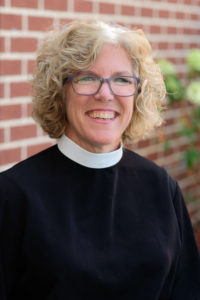 Brenda Bos (she/her/hers) is the Assistant to the Bishop in Southwest California Synod, working with the first openly gay bishop, R. Guy Erwin, also a member of Proclaim. Brenda lives with her wife Janis and their son, Joshua. She has not yet given up her over-ambitious list of Lenten disciplines.
Brenda Bos (she/her/hers) is the Assistant to the Bishop in Southwest California Synod, working with the first openly gay bishop, R. Guy Erwin, also a member of Proclaim. Brenda lives with her wife Janis and their son, Joshua. She has not yet given up her over-ambitious list of Lenten disciplines.

 That’s the term many of us in the queer community serving the church have called our partners, lovers, spouses, or significant others for the past ten years. Somewhat jokingly, yet somewhat seriously, this term embodied both our deepest love and our oppression.
That’s the term many of us in the queer community serving the church have called our partners, lovers, spouses, or significant others for the past ten years. Somewhat jokingly, yet somewhat seriously, this term embodied both our deepest love and our oppression.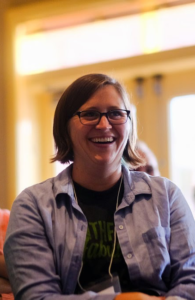

 Southeastern Synod elected an openly gay & married Bishop. Proving that when congregations make the bold & Spirit-driven move to call LGBTQIA+ pastors they grow to LOVE these called ministry leaders and perhaps one-day vote them into office as Bishop.
Southeastern Synod elected an openly gay & married Bishop. Proving that when congregations make the bold & Spirit-driven move to call LGBTQIA+ pastors they grow to LOVE these called ministry leaders and perhaps one-day vote them into office as Bishop. 
 What if we calculated our lives in change? What if the equation included discovery, expansion, pruning, and stillness? That’s an exciting prospect for me and when I’m bogged down by a scarcity mentality, I remember that I have a choice. I can frame my life differently by posing a simple intervention, “but what has changed?”
What if we calculated our lives in change? What if the equation included discovery, expansion, pruning, and stillness? That’s an exciting prospect for me and when I’m bogged down by a scarcity mentality, I remember that I have a choice. I can frame my life differently by posing a simple intervention, “but what has changed?”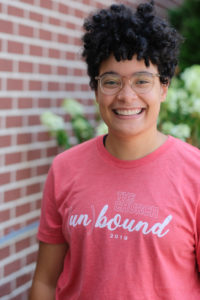 Olivia LaFlamme (they/them/theirs) is a Black gender non-conforming queer feminist residing in Durham, NC. They are the Program Director at Extraordinary Lutheran Ministries. These days home, family, and doing puzzles are at the center for them. A goal for 2020 is learning how to sew!
Olivia LaFlamme (they/them/theirs) is a Black gender non-conforming queer feminist residing in Durham, NC. They are the Program Director at Extraordinary Lutheran Ministries. These days home, family, and doing puzzles are at the center for them. A goal for 2020 is learning how to sew! 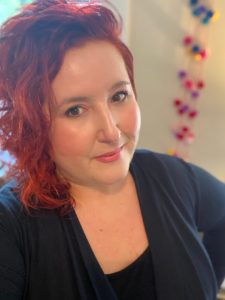





 internship site at Luther College the other day. It’s a little over a mile from my home and the last part crosses the campus. In the winter, I’m usually ready to get out of the cold, and the large imposing Center for Faith and Life looks steps away by the time I’m ready to be inside. But just at that point, the sidewalk takes a sharp turn and leads me in the opposite direction of my intended destination. Finding meaning in this route is unavoidable as I reflect on how the last and next 30 years of Extraordinary Lutheran Ministries’ journey intersects with my own winding path to ministry.
internship site at Luther College the other day. It’s a little over a mile from my home and the last part crosses the campus. In the winter, I’m usually ready to get out of the cold, and the large imposing Center for Faith and Life looks steps away by the time I’m ready to be inside. But just at that point, the sidewalk takes a sharp turn and leads me in the opposite direction of my intended destination. Finding meaning in this route is unavoidable as I reflect on how the last and next 30 years of Extraordinary Lutheran Ministries’ journey intersects with my own winding path to ministry. 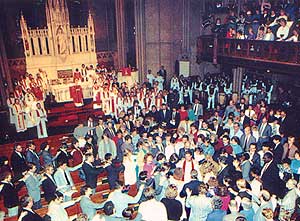
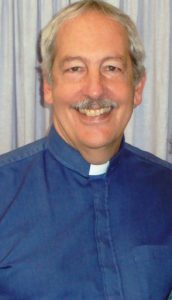 Rev. Steve Harms (he/him/his) Senior Pastor at Peace Lutheran in Danville, CA. Former President of the Interfaith Council. Founder of Ruah Drama Ministry.
Rev. Steve Harms (he/him/his) Senior Pastor at Peace Lutheran in Danville, CA. Former President of the Interfaith Council. Founder of Ruah Drama Ministry.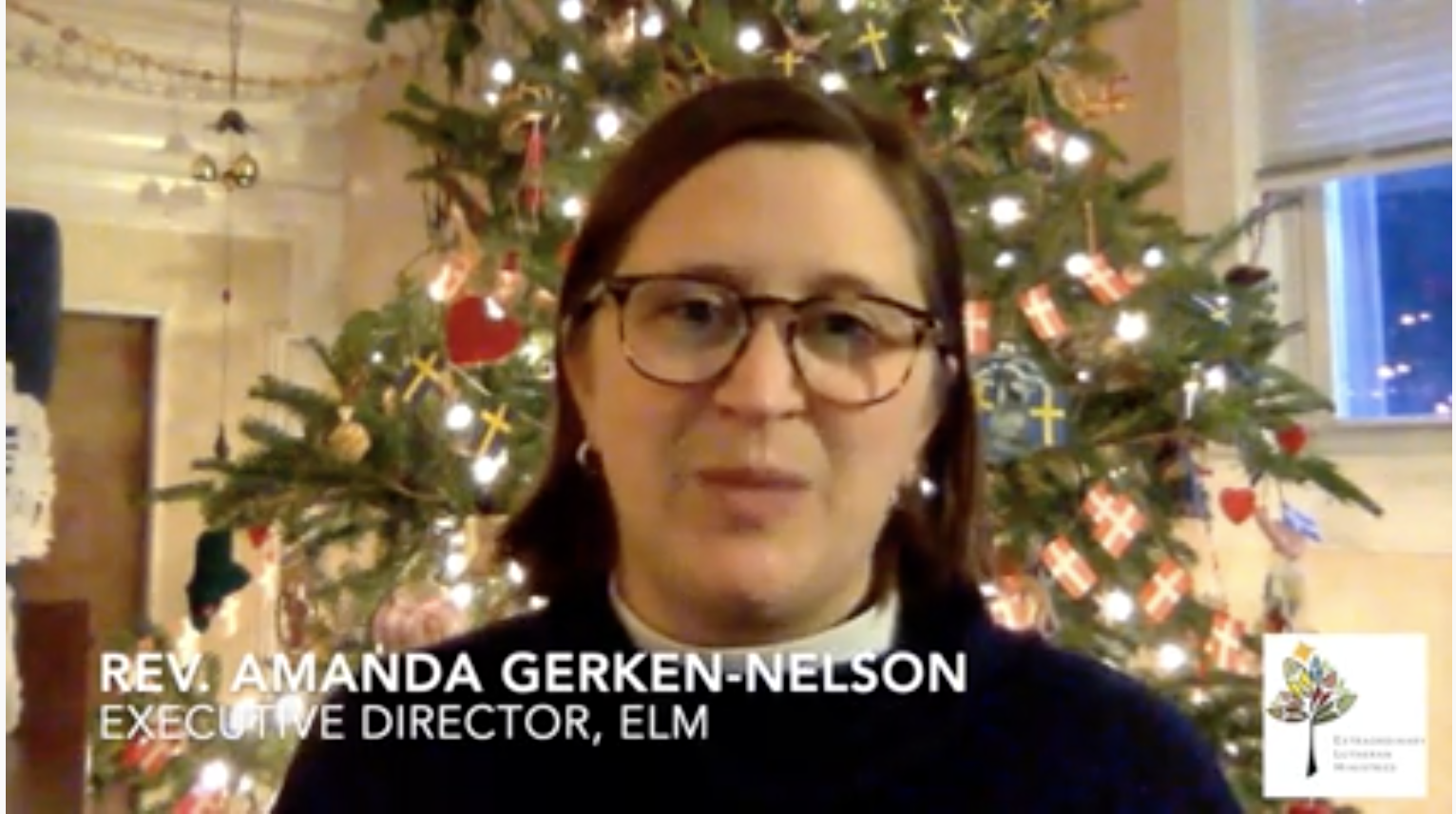

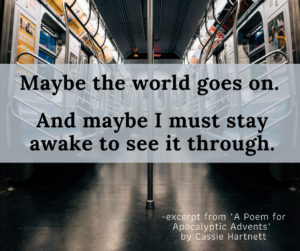
 Cassie Hartnett (she/her) grew up on the Connecticut shoreline and graduated from Union Theological Seminary in May 2019, where she studied psychology and religion, and wrote a new play for her thesis project. Previously, she studied at Barnard College and spent two years in the Twin Cities serving with the Lutheran Volunteer Corps, including work with ReconcilingWorks. Cassie began her internship year at St. John’s Lutheran Church in Parkville, MD this August. In her spare time, she practices ballet and yoga, bakes excellent cookies, and can recommend a great queer young adult novel.”
Cassie Hartnett (she/her) grew up on the Connecticut shoreline and graduated from Union Theological Seminary in May 2019, where she studied psychology and religion, and wrote a new play for her thesis project. Previously, she studied at Barnard College and spent two years in the Twin Cities serving with the Lutheran Volunteer Corps, including work with ReconcilingWorks. Cassie began her internship year at St. John’s Lutheran Church in Parkville, MD this August. In her spare time, she practices ballet and yoga, bakes excellent cookies, and can recommend a great queer young adult novel.”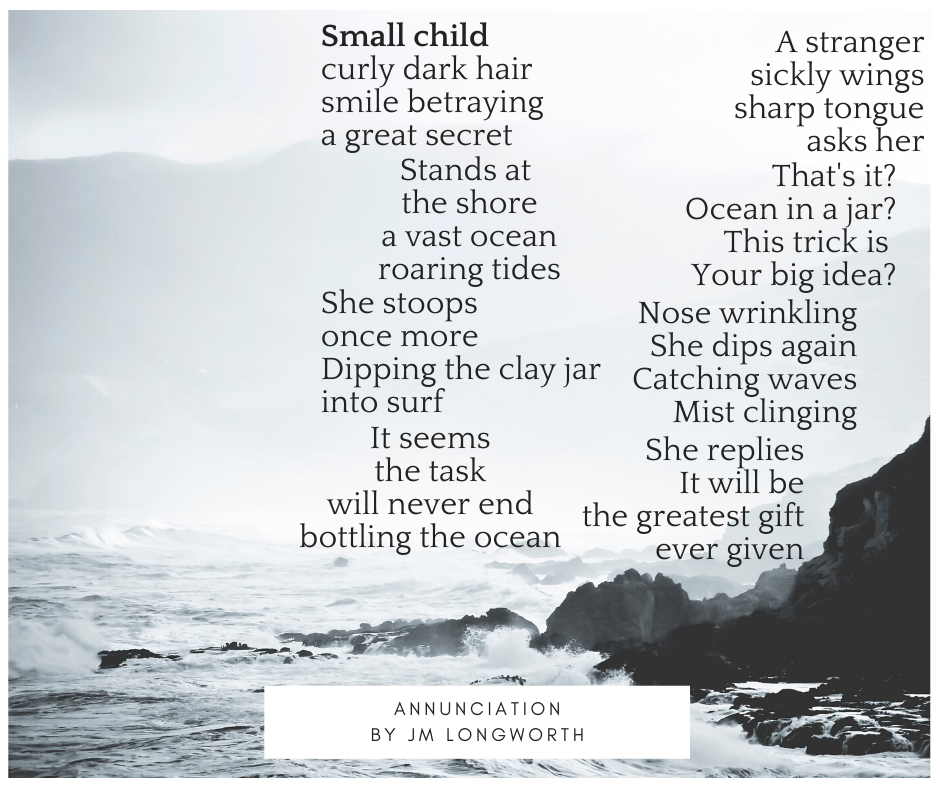

 JM Longworth (they, them, theirs) lives in Rutland, Vermont with their partner Sara and two dogs. They are currently serving as the pastor of Good Shepherd Lutheran Church and as co-pastor of the Faith on Foot Ministry Cooperative. JM also serves on the Board of Extraordinary Lutheran Ministries, and as a Formation & Vocation Coordinator for the Order of Ecumenical Franciscan.
JM Longworth (they, them, theirs) lives in Rutland, Vermont with their partner Sara and two dogs. They are currently serving as the pastor of Good Shepherd Lutheran Church and as co-pastor of the Faith on Foot Ministry Cooperative. JM also serves on the Board of Extraordinary Lutheran Ministries, and as a Formation & Vocation Coordinator for the Order of Ecumenical Franciscan.